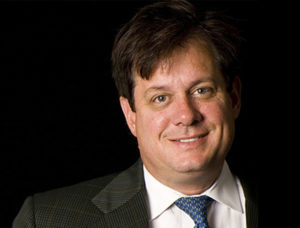With Stephanie Rawlings-Blake’s announcement that she won’t seek re-election, the 2016 Baltimore mayor’s race could become a free-for-all. If the technology and entrepreneurship community wants to continue gaining influence and having a role in effecting change, putting a candidate in the race may be a good way to ensure a strong voice.
Set to fall on the anniversary of the unrest and riots that followed Freddie Gray’s funeral, the 2016 Democratic primary race is already shaping up to provide a big-picture debate about the future of Baltimore, and a sounding board for ideas about solving the long-term structural inequalities that the unrest spotlighted.
Familiar candidates like former mayor Sheila Dixon, State Sen. Catherine Pugh and City Councilman Carl Stokes threw their hats in the ring before Rawlings-Blake decided to sit this one out. With the incumbent removed from the equation, the ballot is expected to grow even further.
Add that to sentiments that Baltimore can’t go back to old ways of doing business, and the mayor’s race seems to be crying out for someone who can inspire new confidence in city government, and bring different groups together to enact reforms.
Whether it’s the mayor showing up at Mindgrub’s new office launch or a city task force digging into broadband access, the technology community is quickly proving to be too economically influential for city leaders to ignore. At the same time, we’ve heard a number of entrepreneurs tell us the next mission for the tech community is to create ways to effect change.
Many politicians have said that getting to the next level to exert the kind of influence over policy requires running for office. It’s pretty easy to picture tech leaders and entrepreneurs thinking along the same lines.
There is precedent for political involvement. In the 2011 cycle, Dave Troy and other members of the tech community rallied around Otis Rolley, the former head of the city planning department who ended up finishing well behind Rawlings-Blake and Pugh. Rolley is an MIT grad who was considered at the time to be part of the city’s “new guard.” But when he lost, the tech community had to get reacquainted with a mayor they spent the campaign criticizing.
A candidate with more direct ties to entrepreneurs could keep things from getting awkward. Obviously, there’s a huge jump from backing a candidate to actually becoming a candidate. But in the four intervening years there has been a leap in where tech sits in the civic conversation.
That leads to the question: Who could represent the tech community as mayor?
There are leaders who make a point to support the tech community. State Sen. Bill Ferguson took up multiple startup-centered issues in the state legislature, and economic development leaders like Baltimore Development Corp. CEO William Cole is frequently cited as a partner by tech leaders. At the same time, longtime tech community leaders like Emerging Technology Centers President Deb Tillett and former gb.tc director (and recently hired city Broadband Coordinator) Jason Hardebeck currently have influential roles in city government. Equally, we see Troy and Groove CEO Ethan Giffin talk about enacting specific systemic changes that would have a huge impact on any election.
But given the city’s current moment, it’s worth considering who from the community has that unique ability to bring different groups together, get them rowing in the same direction toward change and getting the public excited about it.
Here are 10 to consider:

1. Wes Moore, CEO, Bridge EdU, Author
Why: Moore has the kind of background that seems tailor made for public office. He’s a Harvard grad from a tough Baltimore background, Army veteran, Rhodes Scholar and White House Fellow. And by the way, he’s also a best-selling author who can definitely inspire. The tech community can’t claim him all to themselves, but Moore is a frequent speaker on STEM education, and his innovative approach with education-focused social enterprise BridgeEdU shows he’s willing to put new practices into the world.
So what’s stopping him? Moore is one of a couple of candidates on this list who are actually rumored to be preparing a mayoral campaign, but he may not be ready for a top executive office. He has long waved off questions about whether he is looking to run for office locally, citing his current focus on BridgeEdU. (Of course, politicians usually say they aren’t running until they announce that they are.) Given his national notoriety, there’s also chance he may skip over City Hall for a higher office.

2. Kevin Plank, Founder, Under Armour
Why: As his company’s projected earnings rise further into the billions and the entrepreneur begins to look at his personal fortune, Plank has more openly discussed his civic duty to Baltimore. With the acquisition of most of Port Covington, the much-loved businessman who seems to embody Baltimore’s underdog spirit said he wants to bring more economic development, innovation and members of the creative class to Baltimore. With memories of Michael Bloomberg still fresh, that begs the question: Why stop the progress at the end of the peninsula?
So what’s stopping him? Without any of the pains of winning an election, Kevin Plank is already one of Baltimore’s most powerful citizens. Thanks to the Port Covington deal, he’s also one of the city’s biggest landowners in a position to shape an entire neighborhood’s future. He doesn’t need to be mayor to change things. But if he did want to get in the race, he would probably have a big group behind him.

3. Jane Shaab, Assistant Vice President for Economic Development, University of Maryland, Baltimore
Why: We already know Shaab has been to the mayor’s office with a photo of a blighted corner that became UMB BioPark. A natural connector whose work has been bridging the government, university, technology and wider business communities for a long time, Shaab has the skills and experience to lead a big operation like city government and navigate the labyrinthine ways of City Hall. As one of the original founders of gb.tc, her dedication to the local tech scene is genuine.
So what’s stopping her? At this point in her career, Shaab may be happy right where she is. After all, there are new buildings and programs left to come online at the BioPark.
4. Katrina Stevens, Senior Advisor, U.S. Department of Education Office of Ed Tech

Why: As an influencer in edtech, Stevens builds bridges across groups of educators, technologists and government to change learning. She could apply the same skills to city government, and keep that entrepreneurial attitude toward reforming a big institution. Since taking her current job at the U.S. Department of Education, she has maintained both her commitment and residence in Baltimore, indicating that her love for the city runs deep.
So what’s stopping her? Name recognition would be tough with this many candidates in this short of a cycle. And she may already have the job she wants: a senior role in the federal government with big plans to build edtech innovation clusters across the country.
5. Nick Mosby, City Councilman, District 7

Why: Mosby’s national profile grew during the unrest, both for his own interviews with national news and his wife Marilyn’s role in charging the officers as Baltimore City State’s Attorney. He’s said he’s considering a run for mayor. Before all of that, we knew Mosby as an early adopter of Baltimore tech who has plenty of other progressive bonafides, as well.
So what’s stopping him? Mosby is still young and somewhat inexperienced on the executive level. He will also be linked with his wife, whose office will be trying the officers in the Gray case as the campaign is kicking into full gear. Any outcomes that affect her could affect him.
6. David Warnock, Founder and CEO, Camden Partners

Why: With his social entrepreneurship-focused foundation, the investor has been a highly visible business leader who is interested in civic life beyond a few token board seats. With projects like Green Street Academy, he’s shown a willingness to take on completely new approaches that cross tech/creative/business/green and beyond, and the ability to bring all of those groups together to get it done. And as chairman of the Greater Baltimore Committee, he’s already been making speeches.
So what’s stopping him? Around the time we started hearing the business community had soured on Rawlings-Blake, it sounded like Warnock might get in the race for real. In that case, a deep analysis of polling data that we don’t have access to would be what stops him.

7. Jess Gartner, CEO, Allovue
Why: First, there’s Allovue, which takes an app-based approach to tracking education dollars. We could easily see such an idea applying across city government departments that have not been audited for years. Gartner’s commitment to changing a big institution and her ability to rally people around the effort reveal potential political promise.
So what’s stopping her? She’s a startup founder. What’s better than that? She’s also young and Allovue’s Balance platform is still too early in the game to call a success. At this point, Gartner is more likely to change city schools, which would be a major accomplishment in itself.
8. Andrew Coy, Executive Director, Digital Harbor Foundation
Why: Coy has plenty of experience reaching across communities of makers, educators, schools, technologists, nonprofits and government. Right now, it’s all directed at getting more kids access to tech-centered education. But it could be directed at making City Hall work better for Baltimore. A familiar face to local politicians, he’s also starting to build a national reputation at places like, say, the White House, that would serve the city well.
So what’s stopping him? To his credit, Coy’s passion for Digital Harbor Foundation runs so deep that it’s tough to see him doing anything else at this point.
9. Torin Ellis, CEO, See Future

Why: Hearing this tech recruiting expert talk to students about their future technology career, it’s easy to replace them with grown-up Baltimore residents who he’s telling about his plans for the city. His experience as a recruiter finding the best people would likely serve the city well, and his advocacy for more diversity in STEM fields could easily be translated into an overall economic development policy.
So what’s stopping him? Despite his oratorical gifts and the wonders of paid media, name recognition with the general public would likely be a challenge in the short election cycle.
10. Jen Meyer, CEO, Betamore
Why: In nine months as CEO of Betamore, Meyer has convened a diverse set of previously siloed stakeholders around a bold goal that will lift up the whole community. That sounds a lot like what a politician does to us. Her leadership experience at EAGB and gb.tc make her deeply networked in the city.
So what’s stopping her? Like others on this list, she seems deeply committed to growing Betamore at the moment. And with her relentless focus on tech and economic development, we haven’t heard much about her views on other issues.
Now, who did we miss? Come hang out and tell us at Baltimore Innovation Week.







